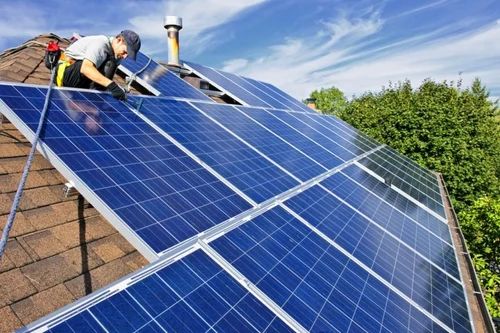In today’s fast-paced and increasingly eco-conscious world, businesses continually seek new ways to reduce costs, enhance efficiency, and position themselves as forward-thinking organizations. One solution that continues to gain momentum is the adoption of commercial solar systems. Far from being just a green initiative, these systems are becoming a strategic investment for businesses aiming for long-term growth and sustainability.
Why Solar Energy Makes Sense for Businesses
For many business owners, the first concern is the bottom line. It’s understandable every decision needs to be grounded in financial viability. What makes solar power particularly appealing is that it not only contributes to environmental goals but also offers real, measurable cost savings over time.
Energy expenses are often one of the highest recurring costs for a commercial property. By switching to solar, companies can offset a significant portion of their electricity bills. The more energy a business consumes, the more substantial the savings potential becomes.
The Rise of Commercial Solar Systems
While residential solar installations have been growing steadily, commercial solar systems are now gaining prominence. Businesses, warehouses, retail centres, schools, factories, and even agricultural operations are recognizing the opportunity to transform unused roof space or land into a powerful energy-generating asset.
These solar setups are scaled to meet the unique needs of commercial operations. From small businesses to large corporations, tailored systems can be designed to match energy demands, architectural constraints, and long-term financial goals.
Beyond Cost: Reputation and Responsibility
Today’s customers are more aware than ever. They value transparency, sustainability, and ethical practices. Businesses that adopt solar technology are not only reducing their carbon footprint but also improving their public image.
Clients, investors, and stakeholders are increasingly drawn to companies that align with green values. Integrating solar energy into a company’s operations sends a clear message: “We care about our impact on the planet, and we’re not afraid to lead by example.” This kind of reputation can drive loyalty and open up new opportunities in markets that prioritize environmental responsibility.
How Commercial Solar Systems Drive Growth
The benefits of commercial solar systems extend far beyond just environmental or image gains. They create a ripple effect that can influence several areas of a business’s growth strategy.
Increased Profit Margins
When energy expenses are reduced, profit margins naturally widen. These additional funds can be reinvested in operations, marketing, staffing, product development, or other areas of growth.
Energy Independence
One significant advantage of solar energy is protection from energy price volatility. With traditional power sources, prices fluctuate due to factors outside of a business’s control. With solar, companies gain greater energy independence and long-term cost predictability.
Tax Incentives and Rebates
In many regions, installing solar systems can make a business eligible for tax credits, rebates, and other financial incentives. These programs can significantly lower the upfront cost of solar installations, making the transition even more attractive.
Implementation Considerations
Of course, installing a commercial solar system isn’t as simple as flipping a switch. It requires planning, consultation, and a clear understanding of your business’s energy needs.
Site Assessment and System Design
Every building is different, and so are its energy demands. A thorough site assessment will examine the roof space, sun exposure, structural integrity, and current energy usage. The goal is to design a system that’s both efficient and scalable for future growth.
Installation and Downtime
Depending on the system’s size and complexity, installation times can vary. However, professional teams strive to minimize disruptions to normal business operations. Planning the installation during slower periods can help reduce any impact.
Maintenance and Monitoring
While solar panels require minimal upkeep, regular maintenance checks ensure maximum efficiency. Many modern systems are equipped with performance monitoring tools that enable businesses to track output and energy savings in real time.
The Long-Term Impact
Commercial solar isn’t just a trend it’s a transition. As more industries move toward sustainability, early adopters stand to benefit the most. Solar technology is continuously evolving, becoming more affordable and efficient with each passing year. Investing now sets the stage for long-term advantages that competitors may struggle to catch up with in the future.
The shift to commercial solar systems represents more than just an upgrade in how a business powers its operations. It’s a mindset, a commitment to more innovative energy use, operational resilience, and a greener future.
Final Thoughts
In an age where sustainability meets strategy, the choice to go solar isn’t just a good idea it’s a smart business move. The financial savings, brand reputation, and long-term growth potential make solar power an opportunity that forward-thinking businesses can’t afford to overlook.
Whether you run a small shop or manage a large enterprise, now is the time to explore how solar can fit into your growth plans. With the right system in place, the sun doesn’t just rise on a new day it shines on a brighter future for your business.




